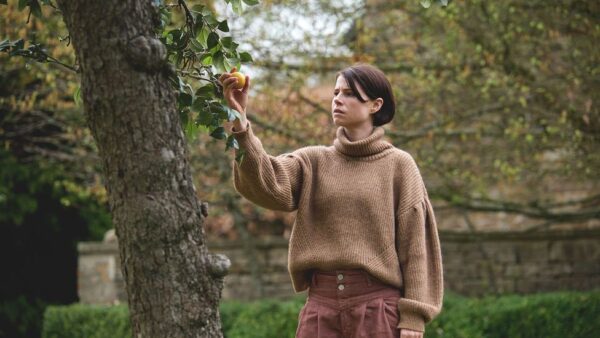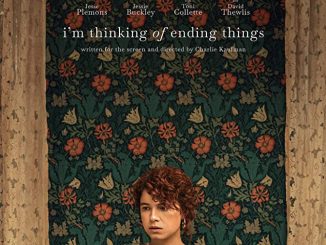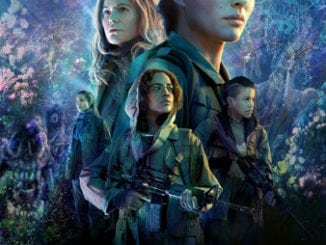Men (2022)
Directed by: Alex Garland
Written by: Alex Garland
Starring: Jessie Buckley, Paapa Essiedu, Rory Kinnear

MEN (2022)
Directed by Alex Garland
It’s a moderately priced horror with a couple of recognisable actors, a director with art-house sensibilities and the A24 logo slapped on the side. So it looks like we’re in allegorical-horror territory. Or even ‘is it really horror(?)’ territory. As you can guess from the direct name, Men is a treatise on the battle of the sexes. We follow Harper: recently widowed following a tragedy. To help her heal, she’s left London to rent a very big house in the country. However, someone or something from the surrounding woods seems to be stalking her – first taking the form of a naked man who shuffles threateningly behind her. Unfortunately, the other men in the area aren’t much help – from the handsy priest to the misogynistic teenager, they seem to want much the same thing he did. And it soon seems like the wandering nudist may be the least of her worries.
First the plus points. As per his previous movies, Garland is nothing if not a skilled stylist. He loads the film with striking iconography, and his shot composition is as good as ever. There’s an ethereal quality to the scenes involving the natural world, and the audio is sometimes inspired. As little noises from different parts of the house encircle both Harper and the viewers, it’s a great example of using sound design to build tension. A creepy folk tune that bookends it is also a welcome inclusion, though the standout is a sequencing involving an old tunnel, as Buckley’s voice is layered over and over itself. Speaking of Buckley, though her accent appears to jump around in the first act, she performs well in a frustratingly submissive part. The film may well be walking the same familiar grounds as numerous other trauma horrors, but she immerses herself in the role and just about sells it. Then there’s Kinnear, who plays a whole host of characters, including the landlord, the naked guy, a vicar, a cop and a kid with his computer-generated face: a nice trip to the uncanny valley. It’s a spirited display of his talents that shows off his range.
Since Kinnear plays every male part besides her husband, one naturally concludes Garland is arguing that though their abuse may come in many forms, men are ultimately the same. The other interpretation is that she has projected this homogeneity onto them because of what’s happened to her – though this reading is undermined by various events I shan’t give away. So think one monster with 3.5 billion faces (three billion four hundred ninety-nine million nine hundred ninety-nine thousand nine hundred ninety-nine faces after we take off Garland). On the one hand, Men seemingly argues that their behaviour is conditioned – exacerbated by a social system that not only enables but actively encourages lechery. By evoking both new microaggressions and the ancient Judeo-Christian tradition it alludes to, patriarchy has and always will exist. It echoes like Harper’s voice in the dark. As long as there are women birthing men, these men will then strive to dominate them. However, it also explicitly grounds itself in the folk horror tradition via the Green Men legend, the framework of a modern woman finding an earthly evil in the country and the men spreading via spores themselves like plants meaning Garland naturalises their misogyny too.
Bad men birth bad men, and what we see here is man at his most primitive. Sure, he may dress smartly or have a role or title which grants legitimacy and authority. But deep down, this is what he is. And his predictability is his weakness. For all the danger they carry, the men are frequently depicted in this as pathetic and even pitiful. Their lust and neediness are beastly, disfiguring and ultimately self-destructive. Hence Harper’s journey, to the extent there is one, seems to revolve around her recognising their one-track hive mind means she has true power over them. At a time when domestic violence is still a very serious issue, it’s, at best, an ugly mixed message and at worst a way of saying its inevitable. I won’t get started on the dubious racial politics that almost imply a nuanced approach to power before shrugging it off.
To an extent, I could overlook the dodgy commentary if the tone weren’t so smug. Men is a movie that’s simultaneously really shallow, and needlessly opaque. It’s at its best when it’s at its rawest: exploring Harper’s torment and misplaced guilt over what came before. For instance, a domestic dispute brings an energy and intensity to the film that’s otherwise absent. Yeah, the eventual payoff is utterly underwhelming, though it provides much needed dramatic stakes. In contrast, the central villain is scarcely characterised, existing as an ill-defined abstraction rather than a concrete antagonist. This means the horror scenes themselves lack a sense of urgency or authenticity – almost an achievement, considering they’re meant to stand in for something that will likely be utterly familiar to much of the audience. When doing a film about this subject, and not a very original one at that, I don’t understand the need to make the real thing less scary by bogging it down in so much symbolism. The Invisible Man literalised its themes of violence which often goes undetected but integrated it effectively with the action. Likewise, Promising Young Woman. Whereas here, almost all the creepy bits are undercut by a self-congratulatory pat on the back for being so smart, and a reminder that it’s all a bit of a shame really. Where there should be panic there’s just another waffly exchange about gender, a samey reminder that men can be pretty bad sometimes, or bit of in yer face symbolism. Still, it’s hard not to be impressed by some of the body horrors in the last act, where things escalate into a jackhammer visual metaphor. Even if being impressed isn’t the same thing as being invested.
One prolonged sequence, which will undoubtedly define it years from now, assuming it’s remembered, seems to exist more as a technical achievment than a fitting climax to the plot. Harper never seems to step outside the passive role bestowed upon her, and where we ought to finally get a glimpse of personal autonomy, Men stops short of delivering a real resolution – as if Garland did his showstopper then shrugged and said “job done”. The small mercy is that I hadn’t enjoyed it enough before then to be left wanting more. Perhaps one day someone will write a thesis to explain some of the creative choices, and fair enough – I expect a lot of people will love psychoanalysing this one. But as a story, I didn’t find it insightful or exciting. Much like Sunshine and Annihilation, both of which I preferred by some distances, it’s annoying that Garland has made something so emotionally devoid and dull when at its heart there’s a good story waiting to be told. He’s done it before with his novels, with Never Let Me Go, Dredd and, of course, 28 Days Later – I can’t comment on Ex Machina. So hopefully, he will again. Evidently, unlike the titular men, his works aren’t all as bad as each other.







Be the first to comment